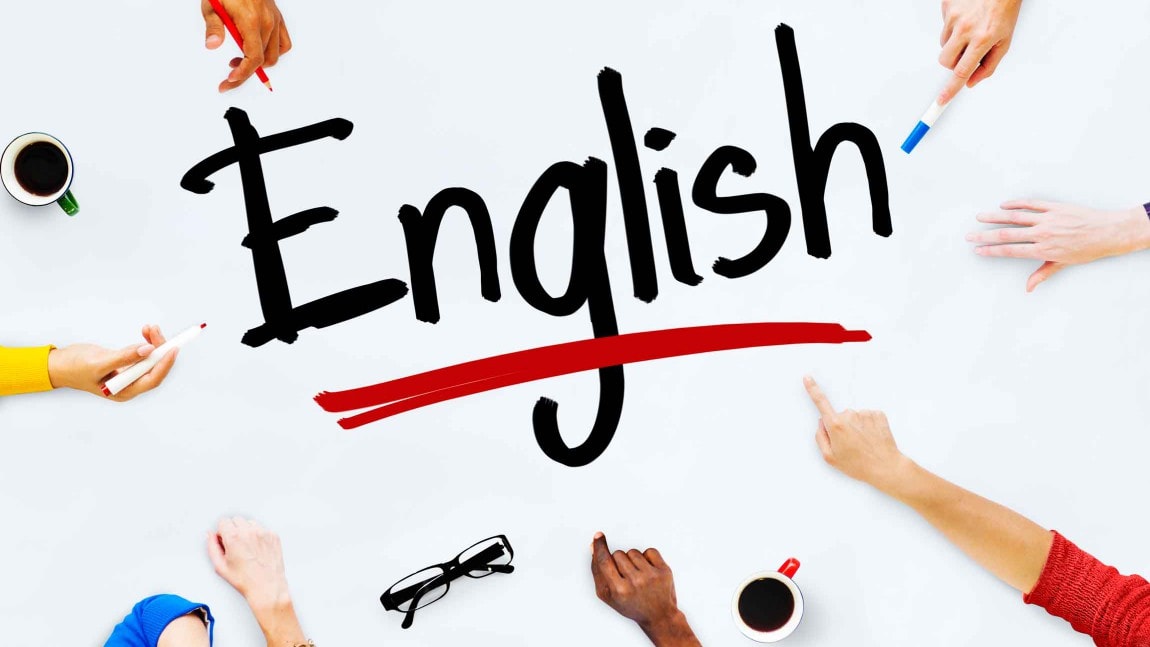When performing translations, writing skills are an important differentiator. The key factor that distinguishes good and poor quality translations is translation writing skills. The key skill is to come up with precise word choices that convey the intended meaning of the author. However, many translators tend to use common words instead of choosing words that better reflect the meaning of the text.
As a translator, your word choice can disrupt the quality of your translation. You may be overusing words that do not clearly represent the intent of the source document. These overused words can cause you to mistranslate specific meanings; missing accents when you try to reflect the author's intention. There are also some words that cannot be translated verbatim.
By staying away from overly common words, you can more fully translate the author's intentions. The wider vocabulary gives you more options for translating difficult texts. Furthermore, a wide word range gives you more credibility as a translator.
Below is a list of overused words along with substitutes that will expand your vocabulary and improve your translation.
+ Note: Prestigious Professional English - Vietnamese Translation
List of 21 Abused Words in English Translation
-
Angry
The word “angry” is too general to effectively convey the meaning and intent behind. From your source text, you can replace 'angry' with words like annoyed, bitter, cross, displeased, enraged, fuming, furious, heated, incensed, indignant, infuriated, irate, irritated, livid, offended, outraged , resentful, riled, or uptight.
You should read the source text carefully so that you can make better choices and do not overuse general words, but instead use specific words that are clearer and easier to effect.
-
Beautiful
You can change 'beautiful' to something more appealing like alluring, appealing, bewitching, charming, dazzling, delightful, elegant, exquisite, gorgeous, graceful, lovely, magnificent, marvelous, pleasing, radiant, stunning, or sublime.
-
Big
You have a lot of options for the word 'big' when translating. For example, the words colossal, considerable, extensive, hefty, mammoth, massive, monster, sizable, substantial, and tremendous can help you stay away from words that are too general and improve your translation greatly, even gargantuan, too. may be in your translation!
-
Funny
Besides 'funny', you can choose from other words like a knee-slapper, amusing, clever, entertaining, good-humored, hilarious, laughable, ridiculous, silly, whimsical, or witty.
You should choose the word that best conveys the author's intent in the source text. Your translation will then reflect a tired sentimentality or be perceived as humorous.
-
Good
Good deals, good people, good things, good lives, good movies, good songs, good books, and good food are found in many translations today.
However, there are some words that can be replaced like decent, excellent, fantastic, first-rate, marvelous, outstanding, superb, superior, terrific, valuable, and worthwhile.
When you expand your vocabulary, you are investing in your career. Instead of overusing common words, more brilliant choices can clarify your translation.
+ Note: Secrets of Translating Idioms From Countries To Standard English
-
Happy
Instead of 'happy' you should consider alternatives like blissful, cheerful, chipper, content, contented, delighted, ecstatic, elated, flying high, glad, jolly, joyful, joyful, jubilant, lively, merry, overjoyed , peaceful, perky, playful, pleasant, thrilled, tickled pink, upbeat, or walking on air to increase the quality of the translation.
Therefore, you should express happiness in different ways to more accurately reflect the author's meaning.
-
Important
You can replace 'important' with many other words like critical, crucial, decisive, essential, exceptional, far-reaching, grave, imperative, large, marked, meaningful, necessary, paramount, relevant, significant, urgent, or weighty. These alternatives can certainly help you discern the different meanings of 'important'.
-
Interesting
One of the safest (and most boring) words in the English language is the word 'interesting'. But it doesn't really tell us about how something is perceived, or the exact meaning of the author.
Words like alluring, amusing, arresting, attractive, captivating, compelling, curious, delightful, enchanting, engaging, enthralling, entrancing, exotic, fascinating, gripping, impressive, fascinating, pleasing, provocative, refreshing, stimulating, striking, and thought- provoking can tell us more than what a writer seeks to convey about an action, event, person, comment, thought, or sound.
-
Know
When someone understands something, we can say they know it. But we can also replace it with another word that has the same meaning like cognizant of, comprehends, is conversant in, discerns, fathoms, gets the idea, grasps, is learned in, perceives, realizes, realizes, or is versed in something .
The reason 'know' is more commonly used is probably because many authors are not familiar with the alternatives.
-
Like
The word 'like' can use synonyms such as admire, adore, appreciate, approve of, care for, cherish, delight in, esteem, fancy, indulge in, keen on, partial to, prize, relish, take an interest print or value. There are many ways to express 'like' like that but they all have special nuances. So when you use 'like', it's probably not an exact match.
-
Little
Your translation should not be omitted with the word 'little' while it is possible to use diminutive, dinky, imperceptible, inappreciable, infinitesimal, insufficient, limited, meager, microscopic, mini, miniature, minute, petite, scant, short-lived , skimpy, slight, sparse, teeny-tiny, undersized. Furthermore, 'little' can produce boring translations.
+ Note: Cheap Quality Professional Document Translation Company
-
Many
We can make the meaning clearer with the words myriad, countless, copious, diverse, numerous, abundant, a plethora of, or several, to umpteen. Your translations will read better and more people will like them.
-
More
English tends to use the comparative adjective "more" instead of the ending er. "More" is used more but less meaning is conveyed, the word will become meaningless.
A basic rule is that we add er to adjectives with one syllable. However, there are exceptions, we can use comparative adverbs like increasingly, frequently or, well, relatively. By using relative comparisons specifically, you can increase the accuracy of your translations.
-
New
For the word 'new', replaceable words such as advanced, creative, fledgling, imaginative, inventive, modern, novel, one of a kind, original, or updated. Use more special words to achieve better translation results.
-
Nice
You should not overuse this word. For example, when describing people, authors may prefer you to translate with more precise words like attractive, charming, cordial, delightful, gentle, gracious, kind, lovely, polite, or thoughtful. If you do, your translation can be nice and useful, and more relevant to the author's intent.
-
Other
There are various alternatives that are more descriptive and true to the author's intention when using the word 'other'. Try using a variety of, additional, auxiliary, dissimilar, distinct, extra, fresh, further, spare, or various to sharpen the translation. Other translators may not do it, but your translation skills are different.
-
Pretty
When referring to beautiful, pretty' is commonly used. However, this word is still not enough to express the author's intention. Instead, words like a looker, appealing, charming, comely, cute, elegant, fair, fine, foxy, good-looking, graceful, handsome, or lovely would be more perfect choices.
+ Note: Cheap English Notarized Translation Service
-
Sad
If you overuse 'sad', you can replace it with bitter, blue, dejected, depressed, despairing, despondent, dismal, distressed, doleful, downcast, glum, grief-stricken, languishing, mournful, sorrowful, or troubled.
-
Said
News reporters, presenters, politicians often use the word said. However, announced, broadcast, described, disclosed, divulged, expressed, made known, narrated, noted, proclaimed, recited, recounted, or reported would be more accurate in translation. By choosing words, the author's meaning can be conveyed more accurately.
-
Things
'Things' can be replaced with accessories, affairs, assets, baggage, bags, belongings, clothes, concerns, effects, equipment, experiences, gear, goods, junk, objects, property, tools, or worries to specify things than.
-
Very
Using 'very' as an adverb too often is an extremely bad habit. If 'very' doesn't convey the intended meaning of the translation, try adverbs like absolutely, acutely, awfully, certainly, considerably, dearly, decidedly, deeply, emphatically, exceedingly, excessively, extraordinarily, extremely, greatly, highly, incredibly, significantly, significantly, particularly, profoundly, significantly, and surprisingly for a better translation.
In short, by changing your words to less frequently used and more interesting words, you can succeed in expressing the author's intent with greater accuracy. That can give you an edge over other freelancers, and satisfaction for yourself.
Furthermore, you can also invest in a thesaurus or use one of the many free online dictionaries: Thesaurus.com, Macmillan, Merriam-Webster, Collins, Babylon, and Thesaurus.net, which can help with expansion. your vocabulary.
Contact us today for the fastest service quote and consultation.
| ✔️ See more related information: | 👉 Reliable, Cheap, Professional Swedish Translation Chuyên |
| 👉 The Most Professional Electronic Translation | |
| 👉 Quick Translation of Seafood Documents | |

Nguyen Trung Khang - Talented interpreter and translator, passionate about translation
Nguyen Trung Khang is a talented interpreter and translator, with many years of experience in the field of translation and linguistics. He graduated from Ho Chi Minh City University of Education, majoring in Linguistics in 2015.
After graduating, Mr. Khang participated in a professional interpretation and interpretation training course at the University of Foreign Languages - Hanoi National University. He achieved a high-level certificate in interpreting and interpreting, and was also awarded a master's degree in linguistics.



